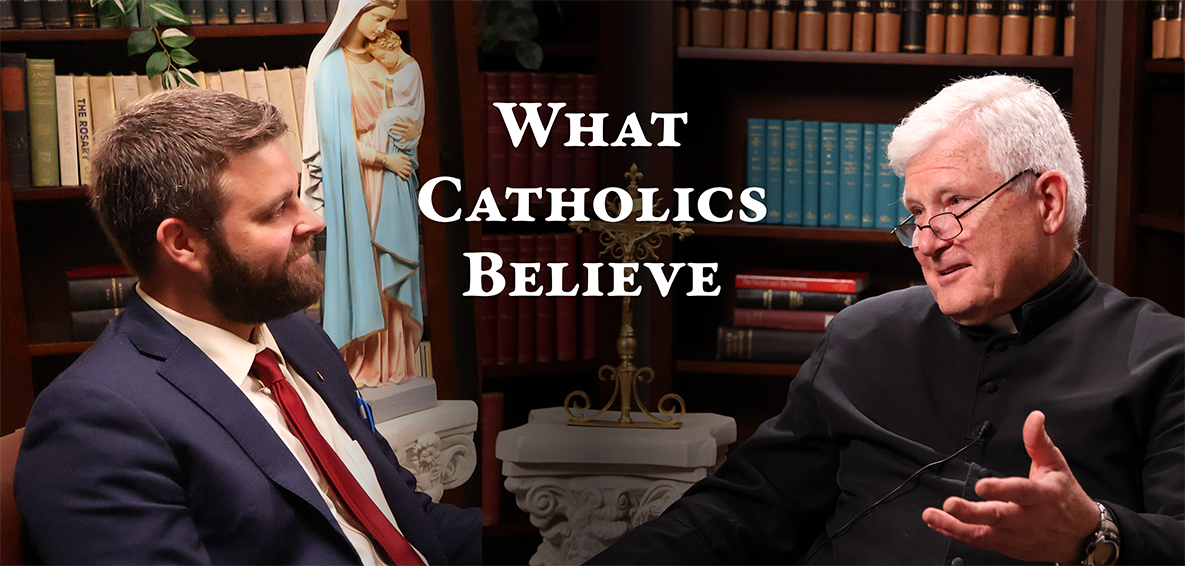Union With Rome - Part I

In his "Intervention" [Video here] of 1969, Cardinal Alfredo Ottaviani made a prediction about the imposition of the New Mass: "It is evident that the Novus Ordo has no intention of presenting the Faith as taught by the Council of Trent, to which, nonetheless, the Catholic conscience is bound forever. With the promulgation of the Novus Ordo, the loyal Catholic is thus faced with a most tragic alternative."
Cardinal Ottaviani's forecast had proven true, as Catholics of the past 40 years have felt compelled to choose between being faithful to Catholic Tradition or being "in union with Rome." This tragic alternative is the result of a false dilemma - a dilemma that can be dispelled only by addressing the question: What does it mean for a Catholic to be in union with Rome?
We can see that being in union with Rome means much more than merely being recognized as Catholic in good standing by anyone - pope or not. After all, we saw that Ted Kennedy was considered a "Catholic in good standing" and regularly "took communion" and was given a church burial by the modern church. To this day, Joe Biden and Nancy Pelosi and Rudy Guiliani are all officially considered to be Catholics in good standing with Rome. Even that notorious enemy of the Catholic Faith, Hans Küng, once a theological expert advisor of bishops at Vatican II, is officially a Catholic priest in good standing with the new order he helped create.
To be in union with Rome means much more than being approved by or being accepted by a pope, for the notion of "Rome" is much greater than the person of any pope. In fact, the Catholic Church has taught that popes can fall into schism and even heresy, and thus find themselves not in union with Rome. A prime example of this is the case of Pope Honorius I. Monsignor Rudolph Graber ("Athanasius and the Church of our Time") cites the great 17th century Catholic theologian Francisco Suarez, SJ, as etching that a pope who tried to change all the sacramental rites of the Church would thereby become a schismatic. This corresponds to Catholic teaching of a pope would go into schism by cutting himself off from and refusing communion with the Catholic faithful.
Thus, Archbishop Lefebvre expressed clearly and forcefully the real understanding of the phrase "in union with Rome" when he declared more than 30 years ago that he was not in union with Modernist Rome but with Catholic Rome - the Rome of St. Peter and his successors. Archbishop Lefebvre saw that there could never be a real dilemma forcing a Catholic to choose between allegiance to Rome and allegiance to any pope. He comprehended this because he understood the true relationship between "Rome" and "the pope."
What does the Catholic Church teach regarding the relationship between the authority of Catholic Tradition and the authority of the popes? Can they really be equal and opposed to each other so that a Catholic would be forced to choose between them? In order to address these questions, ask: Which is of greater authority: Saint Pius X or Catholic Tradition? Saint Pius V or Catholic Tradition? ALL the popes together or Catholic Tradition? The answer of course is that Catholic Tradition holds greater authority than all of the popes. And the reason is that the papacy itself is part of Catholic Tradition.
The Catholic Church holds that Sacred Tradition and Sacred Scripture together are the two "fonts" of Divine Revelation. The papacy itself is actually part of Catholic Tradition, and cannot exist apart from Catholic Tradition or even be understood apart of Catholic Tradition. Thus, in Catholic terms, the papacy can never be separated from or opposed to Catholic Tradition without losing all of its meaning. The papacy was instituted by Christ precisely to guard, serve, and promote Catholic Tradition - not to critique it, to attack it, and to destroy it. *
It is impossible, therefore, that Catholics should ever be required to choose between the papacy the Catholic Tradition, since they are, in fact, inseparable and the papacy itself is subordinate to Catholic Tradition.. To the extent that a pope rejects Catholic Tradition, he necessarily rejects the papacy itself. To the extent that he repudiates Catholic Tradition, he repudiates the papacy with it. One can be in union with Rome only to the extent that he adheres to Catholic Tradition.
Being in truth a "traditional Catholic" means that one is necessarily in union with Rome by that very fact. It is by rejecting Catholic Tradition that one abandons the pope, the papacy, the Catholic Church, and Christ Himself.

